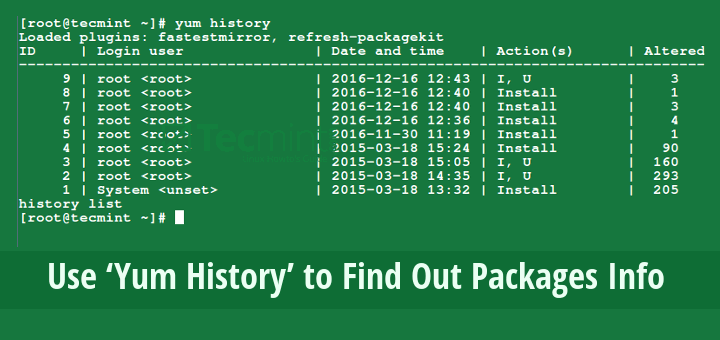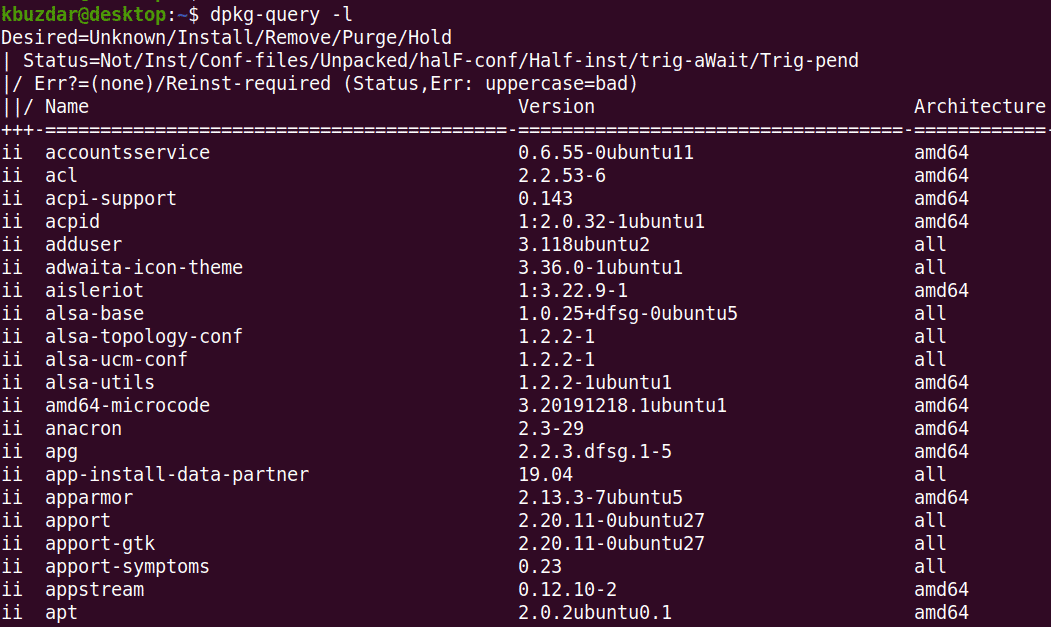

Verify that Docker Engine installation is successful by running the hello-world image. This post looks at how to list the installed packages with YUM from the command line for YUM based Linux distributions, such as CentOS and Fedora. Then create a Docker container locally by following a quick-start tutorial to check that Terraform installed.

public IP addresses or hostnames, account numbers, email addresses) before posting! ✻ Smokey says: Clean up your life. Its OK if yum reports that none of these packages are installed. Use Python code to check if a package is installed in python using yum: def isinstalled (packagename): return 'not installed' in commands. a package manager (Homebrew or Chocolatey). So by supplying the -openjdk.x86.64 you actually tell yum which version of Java should be installed. Note: ensure to redact or obfuscate all confidential or identifying information (eg. yum install java-1.8.0 as there are two versions of Java, one is the openjdk-java and the other is oracle-java. Clearly, yum knows whether or not it already exists, since it's throwing that error, but how can I access that knowledge To add to this, some of the packages are downloaded by way of URLs, not package names, so checking yum list installed doesn't work.

News, articles and tools covering Amazon Web Services (AWS), including S3, EC2, SQS, RDS, DynamoDB, IAM, CloudFormation, AWS-CDK, Route 53, CloudFront, Lambda, VPC, Cloudwatch, Glacier and more. Determining the path that a yum package installed to using repoquery command.


 0 kommentar(er)
0 kommentar(er)
